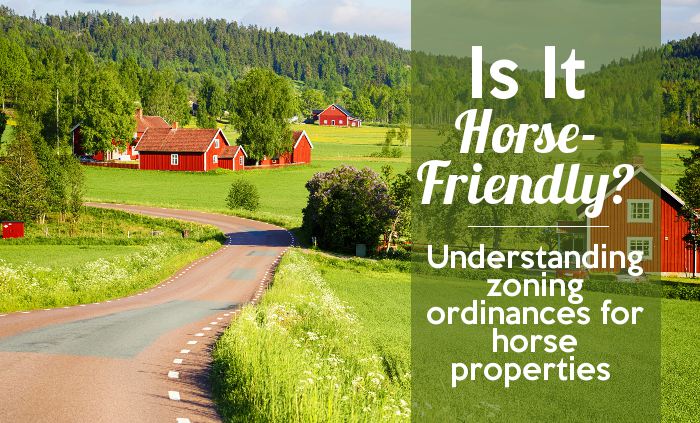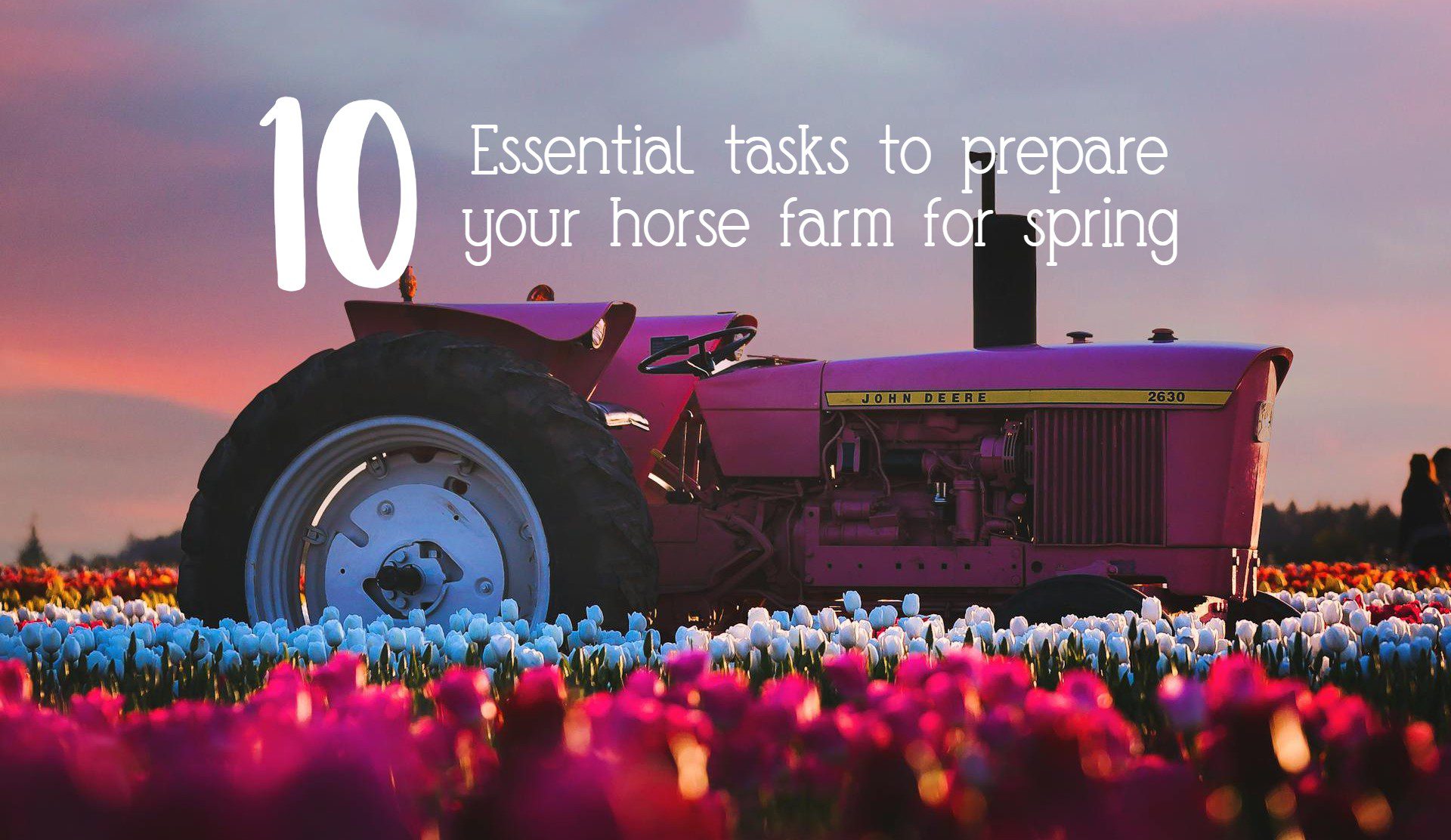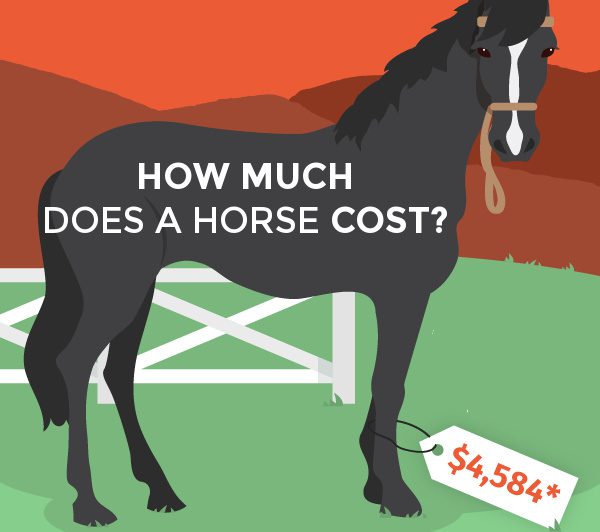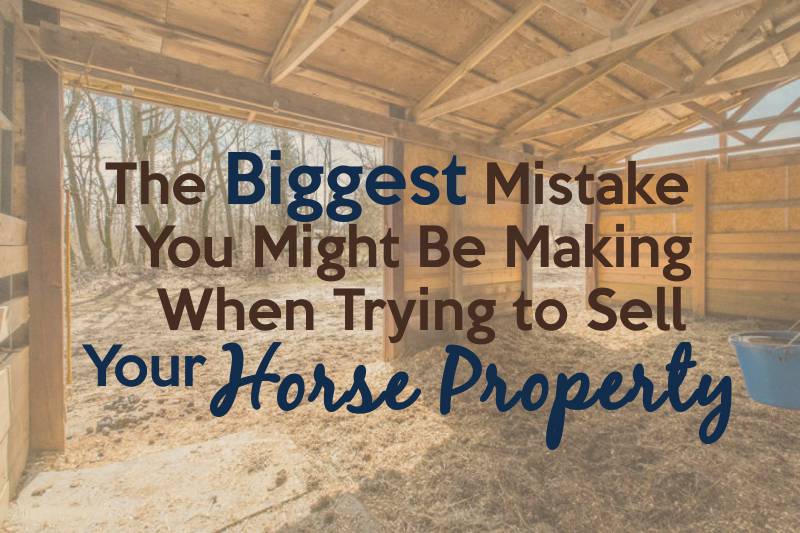Is it horse-friendly? Understanding zoning ordinances for horse properties

A few years ago, Marisa had finally saved enough for a down payment on her dream horse property. It only took her a few weeks to find what she was looking for – a reasonably sized home on 10 acres, with an outbuilding already on the property that would be pretty easy to convert to a 2-stall horse barn.
However, the area Marisa wanted to use as a grazing pasture wasn’t fenced yet, so she invested $6,000 to fence in 4 acres for a pasture.
Three months after getting her two horses and herself settled, she received a notice from her township that her brand-new fence needed to be removed because it violated one of the townships’ ordinances. The ordinance stated that fences needed to be “set back” at least 100 feet from the road. Since her new fence was only 50 feet from the road, it had to be taken out.
Luckily for Marisa, she had enough acreage that she could take down that side of the fence, move it back and still have a large enough pasture area. Unluckily for Marisa, it would cost her another $2,000 to have the offending fence line moved back 50 feet and redone. And because that extra money wasn’t in her budget after purchasing the home and paying for the first fence, she had to move her horses back into boarding for another 3 months until she could afford to redo the open side of the fence.
The Importance of Understanding Zoning Ordinances
Marisa could have saved herself the stress, hassle, time, $2,000, plus boarding fees, if she had done some homework in advance. Having to make unplanned changes to your property – or worse yet, finding out that you can’t use it the way you want at all! – is expensive.
When you’re starting to look at properties, you’ll want to have a pretty good idea of what you want now, as well as what you may want to grow into in the future. You’ll also want to understand the current zoning of the property, so you know what’s allowed, or if a Special Use Permit (SUP) is required for your intended use, and what the process is to acquire that permit. If the zoning’s not right, or the process to acquire a SUP too cumbersome, it may be easiest to just find a different property.
If you’re buying a property with the intention of keeping horses, take the time to find the answers to the questions below before you finalize any deal:
What is the property zoned, right now?
The easiest type of zoning to work with is the current zoning. Codes will vary between municipalities, townships and cities, but typically you’ll want to find a property that is zoned ‘Agricultural’ or ‘Agricultural/Residential’. Be aware that if you plan to run some sort of equestrian business in the future (horse boarding, riding lessons, horse training, etc.), you may actually need a property that is zoned ‘Commercial’.
Don’t be afraid to ask for help. A knowledgeable Realtor who understands local ordinances, can be a great resource for you, so find an agent that specializes in horse properties or country homes and ask if what you’re wanting to do on your property is allowed. If they aren’t sure, they’ll be able to find out.
If you’re planning to make improvements, are there ordinances that will affect your plans?
Local governments may have zoning ordinances in place that affect things like:
- Fencing – there may be requirements on minimum distance from the property line or street, a restriction on types of materials used to construct the fence, or restrictions on the height of the fence
- New buildings – are you allowed to add a new barn, shed or office? Again, there may be restrictions on what can be built, the size of the building, or how close the building can be to other buildings, the property line or the street
- Types of animals allowed on the property – if you’re purchasing a property with the intention of having a horse as part of a homestead that will include other animals, such as chickens, pigs, cows or rabbits, check for any restriction on types and numbers allowed.
- Waste removal – some municipalities allow you to dispose of horse manure on your property, while others have strict restrictions on where or how it can be piled.
Finding a property that is zoned exactly right is ideal. You can apply for a variance to the code, or work to change the ordinance, but nothing is guaranteed. If you do decide to try for a variance, we recommend that you educate yourself on local zoning even more, or find a knowledgeable attorney to help you.








